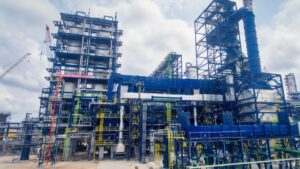
Crude oil supply is tightening, expect higher prices – Analysts
By Akinyemi Precious
According to a report by yesterday, Crude oil supplies across the world are falling as demand outpaces supply.
The gap between supply and demand could be attributed to the supply cuts by the Organization of Petroleum Exporting Countries (OPEC), particularly that of major producer, Saudi Arabia.
The International Energy Agency (IEA) and the Organization of the Petroleum Exporting Countries (OPEC) had earlier projected that oil demand will outpace supply this year, leading to overall inventory draws to the tune of 400,000 to 500,000 barrels per day (bpd), mostly accounted for by the second half of the year (2023).
Analysts believe that the disparity between demand and supply will lead to increased oil prices.
“It appears that the voluntary cuts announced by eight OPEC+ countries in April plus the additional 1 million bpd of unilateral Saudi cut that just started in July are having the desired effect, with sour barrels becoming more scarce.”
It is worthy of note that earlier this month, Secretary general of the International Energy Forum (IEF) , Joseph McMonigle had said that crude oil demand bounced back to pre-Covid levels quickly, but supply is having a tougher time catching up.
He said, “So, for the second half of this year, we are going to have serious problems with supply keeping up, and as a result, you are going to see prices respond to that.”
It is important to note, however, that Brent crude price as of 6:45 am (GMT+1) was $84.40 per barrel.
He also stated that a rise in driving and flying activities this summer has put a strain on supplies as refineries are struggling to cope.
Meanwhile, there was also a drop in Russian crude supplies in July 2023. When demand outweighs supply, prices will rise, and analysts expect that the recent rise in crude oil will extend even further.
If crude oil prices rise on the global market, it means two things for the Nigerian market:
Increased oil revenues are needed as the country plans to roll out intervention schemes to cushion the effect of the fuel subsidy removal on the country’s citizens.
In a prior announcement, the government has made it known that among other plans, it is focused on mass transportation, and alternative energy sources like compressed natural gas as well as reducing the impact of transportation costs as intervention schemes.
An increase in the cost of fuel will be unavoidable because the country has no refining capacity as citizens await the end of the current rehabilitation of the Port Harcourt, Warri and Kaduna refineries. So, as more fuel imports come into the country, facilitated by private companies, fuel pump prices could increase.
This also means that Nigerians need to increase their earnings, to survive a possible fuel pump price hike in the future.



